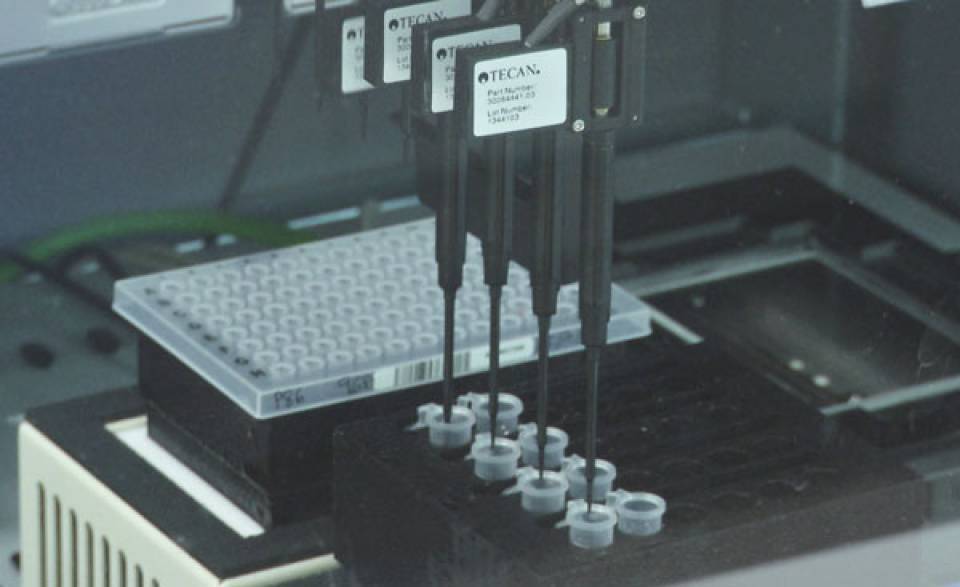The future direction of oncology involves the molecular classification of cancer from genomic data that provide essential predictive and prognostic information for the treatment of patients. So far, the detection of mutations in solid tumors at the anatomic pathology laboratories has been performed gene to gene with slow and laborious sequencing technologies. When the expected mutation is not found, the study process starts over and the beginning of treatment is delayed.
The investment of Hospital Clínic in this technology allows to analyze biopsies of cancer patients within seven days and nearly a third of the new cases of patients with advanced solid tumors will be diagnosed.
The new genetic test allows the detection of all the mutations, both those that are therapeutically actionable now and those that would it be in the future. Dr. Aleix Prat, Head of the Medical Oncology Department explains that "the application of this diagnostic tool in clinical practice saves time and gives us a more complete picture of the biology of the patient’s tumor, so we can choose the appropriate treatment in each case inside and outside of a clinical trial".
At present, the Medical Oncology Department and the Biomedical Diagnostic Centre are working to implement soon a new specific genomic test for breast cancer, a test to determine all possible genetic translocations in cancer, in particular in the lung, and a genetic test to determine mutations in blood (called liquid biopsy) in lung, colon and breast cancer.
Thanks to these genetic tests, may also be approved compassionate off-labe uses of drugs. "There are mutations that have a low incidence in these three types of tumors, but they are the therapeutic target of a certain treatment. This is the case, for example, of BRAF mutations in colorectal or lung cancer, or HER2 mutations in lung and breast cancer. If these mutations are detected, the patient might benefit from treatment directed against this alteration whose use is approved for other cancers or available within a clinical trial”, says Dr. Prat.
Genetic analysis of tumors is done on the new Molecular CORE laboratory at the Biomedical Diagnostic Centre, led by Dr. Aurea Mira, who explains that "we have made a very important commitment to have leading-edge technology for the molecular diagnosis of cancer and other diseases. The aim is that the greatest number of patients can benefit from the latest technology used in research and that now we incorporate in routine clinical practice". Hospital Clinic, through the Biomedical Diagnostic Centre (CDB), makes these genomic tests available to other centers.
"The incorporation of this methodology, not only will allow to advance in personalized treatment of patients, but also it may contribute to the identification of hereditary forms of cancer, which enables the application of preventive measures in these families", concludes Dr. Antoni Castells, Medical Director of Hospital Clínic and an expert in prevention of colorectal cancer.
About the Molecuar Core Laboratory
The Core of Molecular Biology is a highly automated operative area in which molecular biology tests from the different departments of the CBD (Microbiology, Biochemistry and Genetics, Hemotherapy and Hemostasia, Immunology and Pathology) are performed. The development of the Core of Molecular Biology enables the CDB to adapt to the emerging molecular diagnostic technologies and will also facilitate the introduction of future technologies with an impact on the diagnosis.

